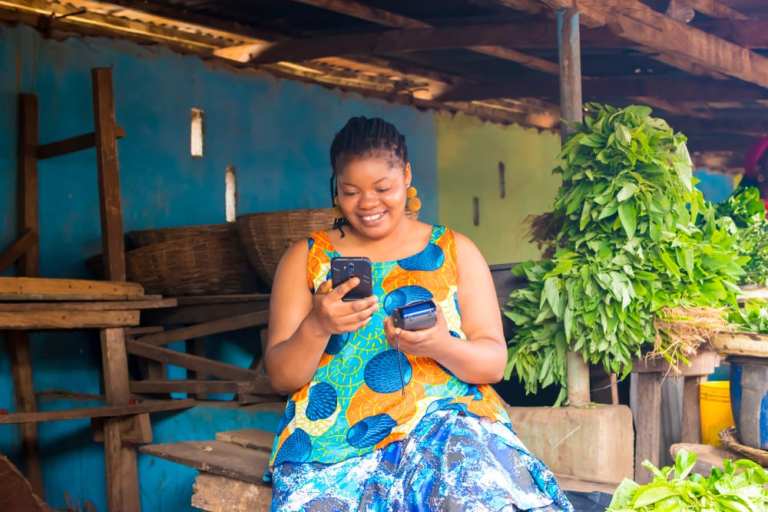Among the biggest ongoing challenges and opportunities in payments – and a trend that will hold well into the 2020s, which are just about to start – is using mobile technology to bring more consumers into the formal financial sector. That can be easier said than done, of course, but in a new PYMNTS discussion with Karen Webster, Laurin Nabuko Hainy, founder and CEO at FairMoney, gave a tour of the emerging payments landscape in Nigeria and offered lessons that can be applied to other developing markets.
The interview happened during a time of expansion and aggressive future planning for the company, a small business and consumer micro-lending technology company that operates in Nigeria. FairMoney recently raised $11 million in venture capital funding in a Series A round led by Flourish, a venture of The Omidyar Group, with DST Global and existing backers Newfund, Speedinvest and Le Studio VC also participating.
Services Growth
More than 200,000 customers use FairMoney to access financing, with the company’s algorithm using data from a user’s smartphone to underwrite those loans. FairMoney can disburse loan funds to users within five minutes, with an average loan value of $33 and a maximum loan amount of $440. Now, according to Hainy, FairMoney hopes to provide banking services and to begin offering accounts in November.
“We are solving multiple problems,” he told Webster during the PYMNTS discussion – problems that might be specific to Nigeria, but are certainly known in other parts of the world. “Nigerian banks don’t like to lend,” Hainy said. Not only that, but those financial institutions tend to charge fees that most consumers would find excessive – for instance, a fee for card issuance and activation. As well, financial institutions in that country – one of the most populous in the world with more than 200 million people, most of them age 24 or younger – generally offer poor user experiences, he said.
That’s not all. “There is no Pan-African digital bank,” Hainy said. “So that’s our starting point.”
Advertisement: Scroll to Continue
For FairMoney, that effort starts with its lending efforts – those microloans, and the data that enables the company to assess risk. The problem with Nigeria and many other developing countries, at least when it comes to loans for consumers and small businesses, is the lack of formal credit-scoring data. That forces companies like FairMoney to come up with their own sources of data, which can include geolocations of prospective borrowers, how they use their mobile apps and other factors that can paint a fuller picture.
“What we are trying to do is introduce data that traditional banks don’t use today,” Hainy said. “We look at quite a number of alternative data points beyond credit scores – for example, what other apps do (potential borrowers) have, and what other information can they provide that we can verify.”
Something must be working – not only can FairMoney raise capital, but according to Hainy, loan acceptance rates have recently tripled.
One-Stop Shop
The idea, as Hainy explained to Webster, was to use that lending as a way to get consumers on board with the company’s upcoming and broader banking options. Consumers who take out loans from FairMoney and then use its app to pay them back might also want to open a digital bank account with the company, or perhaps have paychecks or remittances deposited there. From one step – the small-amount lending – can come others, another lesson that would seem to apply to other places besides Nigeria.
“Our vision is to be a one-stop shop,” Hainy told Webster. “And there are many markets in Africa and beyond with the same needs.”
FinTech is helping to transform daily consumer life in Nigeria and other developing markets. One recent example comes from Kuda, Nigeria’s first digital-only bank with a standalone license. It has raised $1.6 million in pre-seed funding led by Haresh Aswani, with Ragnar Meitern and other angel investors also participating in the round. Unlike other FinTech startups, Kuda was granted a banking license from the Nigerian Central Bank. Other tech innovation is also on the move in the country, with increased attention from Big Tech companies like Google and digital startups like Chipper Cash, a no-fee, cross-border payment company that launched earlier this month.
As the example of FairMoney shows, it can all start by enabling consumers to do more with their mobile phones.




